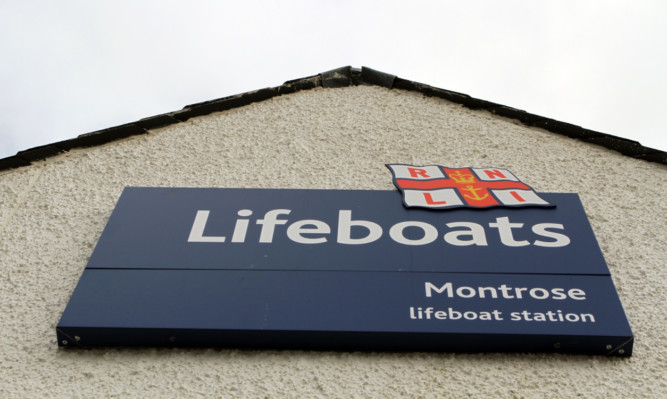Volunteer lifeboat crew and Coastguard figures have warned of “life-threatening” consequences of false callouts following a Mearns incident.
RNLI Stonehaven and HM Coastguard have moved to raise awareness following a solitary flare that led to a full emergency response.
The newly-minted Stonehaven inshore lifeboat was launched following a call from the Coastguard after a member of the public reported a red flare off the Bervie coast.
But the crew were stood down after 90 minutes as it appeared that there was no boat or person in distress.
Coxswain Paul Haynes said deployment to an emergency call is undertaken “without question” by lifeboat crews and coastguard mobile cliff rescue teams.
He added: “A local fishing boat might be sinking, there could be people in the freezing water and lives are potentially at stake.
“However the emergency deployment of a life boat is not taken lightly as it always involves risk to crew – risk which greatly increases at night, particularly when operating inshore along the exposed north-east coastline composed mainly of high cliff and rock outcrops.
“Having deployed to the scene of an emergency call out through difficult sea-conditions in the dark, after an hour of searching,
“it is very disappointing, then, to find out it is a false alarm and that flares are being set off for ‘fun’.”
“Not only are flares highly dangerous pyrotechnics that can cause serious injury or fire, if used inappropriately, significant emergency service resource is tied up.
“This might involve lifeboats, coastguard cliff rescue teams, police, ambulances and search and rescue helicopters, all of which are then unable to respond to a real emergency.
“As a result life could potentially be lost because rescue services are occupied by to a false alarm.”
Earlier this year, two missing local fishermen initiated Scotland’s largest maritime search and rescue operation.
Jim Reid, 75, and his grandson David Irvine, 35, of Inverbervie sipped from a flask of tea and nibbled on two biscuits over two nights in the North Sea.
Their 16ft creel boat, the Water Rail, ran off course when their compass stopped working.
They were found at sea by a passing fishing vessel 46 miles off the coast of Arbroath.
A Maritime and Coastguard Agency spokeswoman said those rescue units would have been unavailable in the case of a bogus call-out.
“Letting off flares is an extremely irresponsible action and can result in rescue units, including lifeboats, coastguard rescue teams and police, being called out for no good reason,” she said.
“While they are assigned to search for the source of these flares, these rescue units are not available for anyone who may have genuinely needed their help.
“Under no circumstances should marine flares be disposed by letting them off.”
